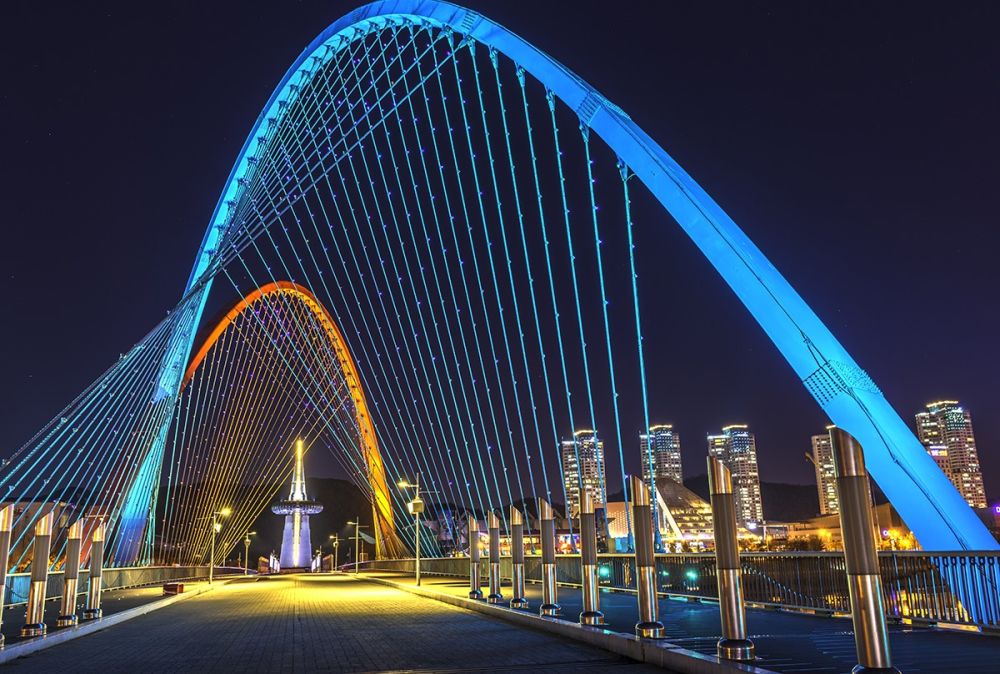

The history of tourism in Daejeon, South Korea's fifth-largest metropolis, comprises a progression from a historically significant transportation hub to a modern center for research and development that has gradually attracted more tourists over the years.
In the early stages, Daejeon was known as Hanbat, a small town during the Joseon Dynasty. It first gained prominence with the construction of the Gyeongbu railway in 1905, connecting Seoul and Busan. This infrastructure development made Daejeon a pivotal transportation junction. Although this did not immediately contribute to large-scale tourism, it set the stage for Daejeon's later popularity by making the city more accessible.
During the 1970s and 1980s, South Korea's economic development and urbanization led to significant modernization in Daejeon. The city was chosen as a site for major national research institutes, which began the transformation of Daejeon into a hub of science and technology—a reputation that still stands today.
The city marked its place on the global map by hosting the 1993 Daejeon World Expo, a significant milestone that attracted international visitors and increased the city's prominence. This event showcased technological achievements and fostered a futuristic image of Daejeon, which became a catalyst for the city's tourism industry.
In recent years, tourism in Daejeon has leaned towards the promotion of science and technology, with attractions like the National Science Museum and the Expo Science Park drawing curious minds from all over. In addition, the city's location in the heart of South Korea makes it a convenient starting point for exploring the surrounding region, including nearby national parks and cultural heritage sites.
The latest trends in Daejeon tourism emphasize ecotourism and wellness. The presence of hot springs in Yuseong District attracts visitors seeking rest and medical tourism. Additionally, the rise in popularity of Korean culture globally, known as the "Hallyu Wave," has brought an increase in international tourists interested in Korean cuisine, entertainment, and language.
Moreover, Daejeon's government actively promotes various festivals and cultural events throughout the year to attract visitors. Efforts are also being made to develop smartphone applications and virtual reality experiences to help tourists discover Daejeon's attractions in innovative and convenient ways.
Through strategic development and an embrace of its scientific heritage, Daejeon has transformed from a transportation node to a burgeoning tourist destination. With its unique blend of technology, culture, and nature, Daejeon continues to evolve, offering diverse experiences to both domestic and international travelers.